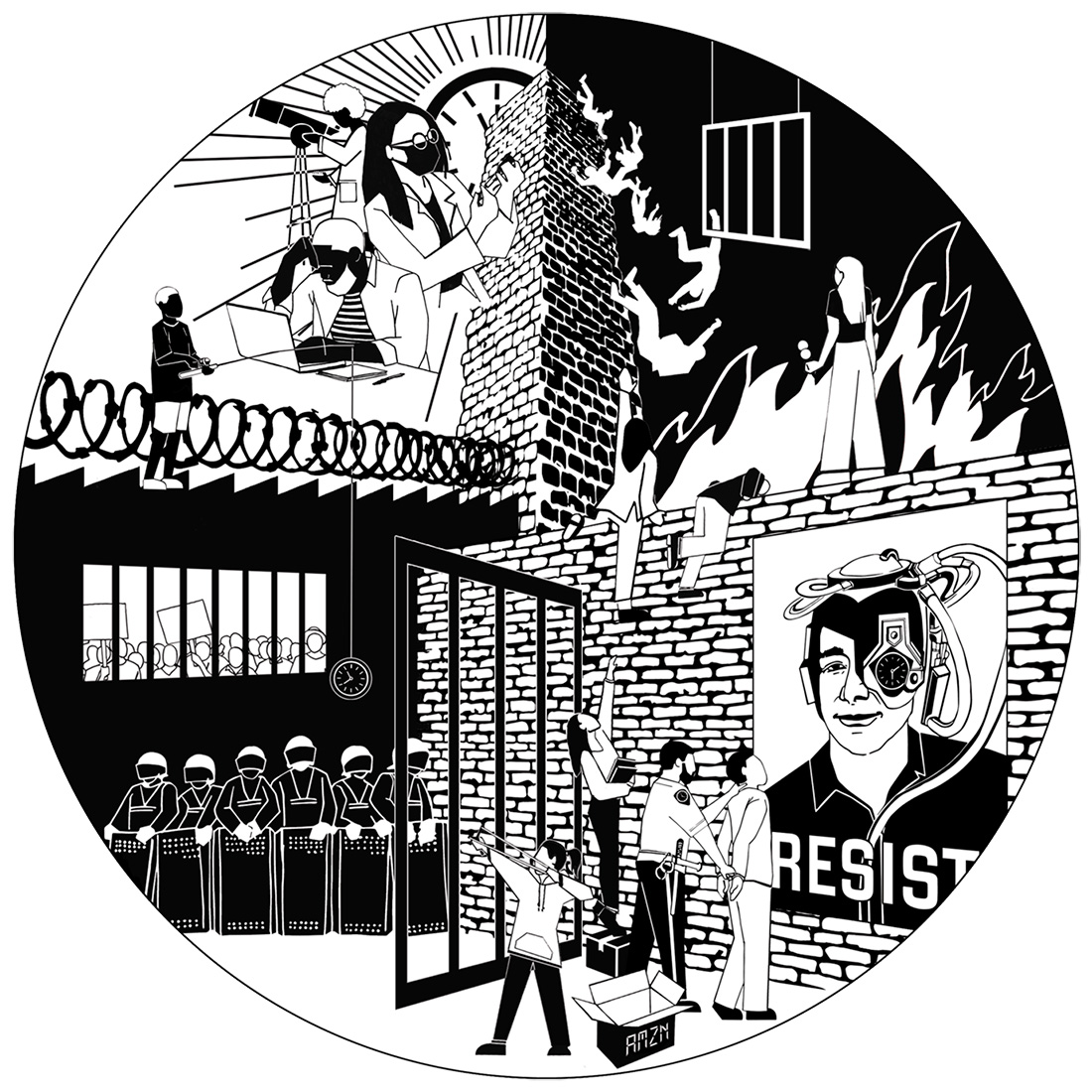Speculative Futures: Labour, Technology, and Ecological Justice

Speculative fiction has long served as a space for exploring different futures, shaped by corporations, workers, and the environment. In collaboration with CApE and organized and moderated by Ali Riza Taskale, this event will explore two key visions of the near future: one through the struggles of Amazon workers for labour and ecological justice, and the other through the ecological challenges of Silicon Valley’s AI-driven ambitions. The discussion will focus on the connections between labour, technology, and ecological crisis, addressing several critical questions: How does speculative fiction reveal the environmental costs of corporate goals? Can storytelling offer alternatives to capitalist extraction and environmental harm? And what role does creative imagination play in shaping the future of both people and the planet?
 What happens when workers, not billionaires, tell the future? Max Haiven will discuss The World After Amazon: Stories from Amazon Workers (2024), a collection of short stories written by people who experience the realities behind Jeff Bezos’ corporate empire. While Amazon promotes convenience and fuels dreams of space exploration, its workers imagine futures of resistance, solidarity, and environmental justice. Their stories reveal the human costs of Amazon’s growth – low wages, dangerous working conditions, and a lack of control over their futures – and the ecological impact, from unsustainable logistics to global consumption. What futures do workers imagine, and how do their stories challenge corporate idealism?
What happens when workers, not billionaires, tell the future? Max Haiven will discuss The World After Amazon: Stories from Amazon Workers (2024), a collection of short stories written by people who experience the realities behind Jeff Bezos’ corporate empire. While Amazon promotes convenience and fuels dreams of space exploration, its workers imagine futures of resistance, solidarity, and environmental justice. Their stories reveal the human costs of Amazon’s growth – low wages, dangerous working conditions, and a lack of control over their futures – and the ecological impact, from unsustainable logistics to global consumption. What futures do workers imagine, and how do their stories challenge corporate idealism?
 Sherryl Vint will take us to the island of Makatea in Tahiti, the setting of Richard Powers’ Playground (2024). In this novel, a tech billionaire’s goal to create human-like AI and establish a seasteading colony conflicts with the island’s fragile environment and Indigenous knowledge. Powers’ novel critiques Silicon Valley’s (dys)utopian vision, which frames AI and space colonization as the next steps in human progress, showing how this leads to environmental damage and the displacement of local communities. In contrast, the novel presents a different vision, based on degrowth, multispecies living, and the resilience of the ocean’s ecosystems.
Sherryl Vint will take us to the island of Makatea in Tahiti, the setting of Richard Powers’ Playground (2024). In this novel, a tech billionaire’s goal to create human-like AI and establish a seasteading colony conflicts with the island’s fragile environment and Indigenous knowledge. Powers’ novel critiques Silicon Valley’s (dys)utopian vision, which frames AI and space colonization as the next steps in human progress, showing how this leads to environmental damage and the displacement of local communities. In contrast, the novel presents a different vision, based on degrowth, multispecies living, and the resilience of the ocean’s ecosystems.
 After the talks, Ali Riza Taskale will lead a discussion with the speakers, connecting the themes covered and reflecting on how speculative fiction critiques the environmental and social costs of today’s corporate-driven futures. The conversation will explore how these narratives challenge techno-(dys)utopian ideas, consider the power of storytelling, and look at the potential of speculative fiction to suggest alternatives to capitalist extraction and ecological destruction. The event will conclude with a Q&A session, allowing the audience to share their thoughts and reflect on how speculative fiction might shape our collective future.
After the talks, Ali Riza Taskale will lead a discussion with the speakers, connecting the themes covered and reflecting on how speculative fiction critiques the environmental and social costs of today’s corporate-driven futures. The conversation will explore how these narratives challenge techno-(dys)utopian ideas, consider the power of storytelling, and look at the potential of speculative fiction to suggest alternatives to capitalist extraction and ecological destruction. The event will conclude with a Q&A session, allowing the audience to share their thoughts and reflect on how speculative fiction might shape our collective future.
A small reception will follow.
Map of South Campus
View directions.
View on map of the Faculty of Humanities - South Campus.
View map of South Campus (pdf).
